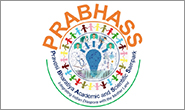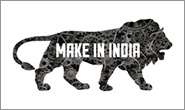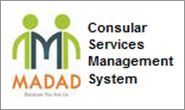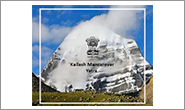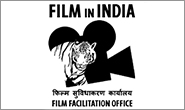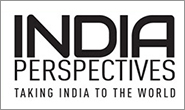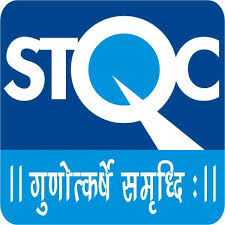Official Spokesperson (Shri Syed Akbaruddin): Thank you very much for your patience and staying back for this briefing on the visit of Premier Li Keqiang to India.
As we have announced previously, Premier Li Keqiang has decided to make India the first stop of the first foreign tour that he is embarking upon. We think very highly of this gesture because it is our view that high-level political exchanges between our two countries are an important aspect and vehicle for our expanded cooperation. The object of such visits and meetings is to enhance trust and understanding between our two governments and our peoples as well as to exhibit sensitivity to each other’s concerns.
As far as China is concerned, it is a very important country and India places priority to our relations with China. We are both ancient civilizations, the most populous countries in the world, and our economies are growing rapidly. We feel that the relationship between India and China is one of the most important in the 21st century. We need to carefully nurture our growing partnership which is significant not only in the bilateral dimension but also increasingly has a global nature.
We have shared with you details of the Premier’s visit but I will just add some elements to what we have shared before. He is arriving tomorrow at 3:20 p.m. following which in the evening there is a restricted meeting with the Prime Minister. Subsequently Prime Minister is hosting a dinner for the Chinese Premier. On the next day, is the formal reception and welcome at the Rashtrapati Bhavan which is at 9 o’clock in the morning. It is followed by the usual homage that visiting dignitaries pay to the Father of the Nation, and that is at 9:30 at Rajghat.
It is normal for a state visit that the External Affairs Minister usually is amongst the first to call on the visiting dignitary, and the External Affairs Minister Shri Salman Khurshid will call on the visiting dignitary at 10:15 a.m. After that at 11:30 there will be delegation-level talks at the Hyderabad House, following which we will have some agreements to be signed and these will be signed at 12:30 p.m. There is also an event in terms of media statements by the two leaders. And then Prime Minister will host a banquet lunch for the visiting dignitary and his delegation and other important persons. In the afternoon, again in accordance with the norms of state visits, the Leader of Opposition will call on the visiting dignitary. He will also have a meeting with the Chairperson of the UPA and will call on the Vice-President of India.
On 21st May, the visiting dignitary will address university students at a function organised by the ICWA along with other collaborators. This is at 10:30 at the Taj Palace Hotel. I understand that we have indicated to all of you the process by which you can attend that function if you so desire. Subsequent to that he will call on the President of India at 12 noon at Rashtrapati Bhavan, and then depart for Mumbai.
In Mumbai he would be visiting the Tata Consultancy Services around 3:30 p.m. and will meet the relatives of Dr. Kotnis at where the visiting dignitary is staying and that is Hotel Tajmahal at about 5:45 p.m. Subsequent to that the Chief Minister of Maharashtra will call on him. And at 7 o’clock, he will meet Chief Executives of leading Indian business houses at a function, and dinner which is being arranged by the ASSOCHAM, CII, FICCI, the three apex chambers of commerce. The next day, that is the 22nd, the Premier will depart.
I think this is the expanse of our interactions. Subsequent to this briefing we will put these details out in the public domain and these will be available on our website along with clear instructions of what are the media opportunities, photo opportunities, etc. All those of you who have PIB cards are welcome for these interactions or events.
Having given you the process, I now have with me Mr. Gautam Bambawale, Joint Secretary (East Asia) who also handles China. He is well-known to all of you. Any of you would like to ask him any questions on any of the substantive issues, you are welcome to do so.
Question:China has proposed a border defence cooperation agreement with India. Any forward movement on that?
Joint Secretary (East Asia) (Shri Gautam Bambawale): That is a subject which is being discussed between the two governments and it will continue to be discussed including during this visit. So, we will have to wait and see.
Question:I understand that the border defence cooperation agreement has proposed that the troop levels should be frozen at the border, and it aims to curb the military plans that we have. What are our views on that?
Joint Secretary (East Asia): This is an intergovernmental agreement which is currently being negotiated. So, obviously I cannot say anything about it because this is a process which is on. Whenever the agreement is finalized and when it is signed, you will get to know the details of the agreement. Right now I cannot say anything because it is a work in progress. We are actually negotiating it with the Chinese and they are negotiating it with us. So, I think I will have to say just say these words and stop there.
Question:This meeting in Mumbai with CEOs, are there any agreements or anything that are likely to be signed? Can you just give us some kind of a feel as to who all would be present at that meeting?
Joint Secretary (East Asia): You are right. There is the standard meeting that our chambers of commerce hold for any visiting dignitary, any Prime Minister or President from any country. This one is being done in Mumbai. I think the Chinese side thought that they should do the economic meeting in Mumbai. I am afraid I do not know who will be attending from our side from the chambers of commerce and industry. But there are some commercial agreements which are to be signed between firms and business entities of the two sides. I believe that is to be done before this particular event at 7 o’clock in Mumbai starts. I would refer you to ASSOCHAM which is the lead organization for this particular meeting. They will have greater details of the agreements and the contracts which are to be signed between Indian and Chinese companies.
Question:I just wanted to ask if the coincidence in New Delhi of the Chinese Prime Minister and the President of Afghanistan will give any particular opportunity to some contact or discussion on the 20th of May.
Official Spokesperson: Maybe I will just answer you on the process. I think you did not listen to my briefing related to Afghanistan. I said that the Afghan President’s interactions here start on the 21st in the evening.
Joint Secretary (East Asia): On the substance, I would only like to draw your attention to the fact that India and China have in various ways been discussing the future of Afghanistan as we move forward. We have done this bilaterally. I think all of you know that our Additional Secretary for Afghanistan visited Beijing a few weeks ago and had a first round of bilateral discussions with the Chinese. It has also been discussed at the NSA’s level trilaterally in Russia. So, Russia, China and India have been discussing this subject with the idea of giving all support to the Afghan Government as we make this transition in 2014.
Question: I have seen this figure of 35 billion in investments from China towards infrastructure in India. Is that an accurate figure?
Joint Secretary (East Asia): Actually the figure is $55 billion. This is the amount of projects contracting the Chinese companies have in India. It is the amount of projects that are either completed or in the pipeline in India. So, it is not investment in terms of foreign direct investment. It is not in terms of setting up factories or units here. It is projects which Chinese companies are doing in India including in many sectors as well as the infrastructure sector.
Question: Given the fact that we are still not looking at a possibility of exchanging maps on the eastern and western sectors, the border defence cooperation is still a work in progress, what are the chances that a recurrence like Ladakh incident might actually impact bilateral relations again? How do you intend to flag it off in the meeting? And is there also a feeling that because the telecom sector issues for Chinese companies have not been sorted out yet completely, they might be holding it as far as opening up the Indian exports in pharmaceutical and IT-enabled services are concerned?
Joint Secretary (East Asia): Let me answer the first question first and then come to the second question on telecom.
What is going to be discussed between the two Prime Ministers is something that even I am not aware of. Everything is on the table when two Prime Ministers of any two countries meet, and definitely that is true even of the Prime Ministers of India and China. Having said that, I think the two Prime Ministers would talk about this subject since it has been a recent occurrence. But I do not want to try to predict what is going to happen. I will see what comes out of their meeting. Of course all of you will be briefed on it by our Joint Secretary (External Publicity) after the meetings of the Prime Ministers have taken place. So, let us see! It is still something that we will look forward to as we move ahead. We will be able to brief you about the outcomes of what the Prime Minister has discussed only after the meeting has taken place. And we will do that as soon as possible after the meeting is over on Monday the 20th of May.
Can you just repeat what was the gist of your question on telecom?
Question: Since we still have issues as far as the Chinese entry into the telecom sector is concerned, Huawei and the other companies, is there a feeling that they might be holding up increased exports of India in pharmaceuticals and IT-enabled services?
Joint Secretary (East Asia): I think we will continue to press on market access in China for Indian companies, whether it is in the pharmaceuticals sector, whether it is in the IT sector. We will continue to press for that and we hope to see results very soon. In fact I can even mention that the reason that the Chinese Premier is visiting Tata Consultancy Services in Mumbai is because TCS has had some success in penetrating the Chinese market especially over the last two, three years. They have adjusted their business model. They have a special business model for China which is different from what it is for the western countries including the United States. And I think they have been successful in getting contracts in China. That is one of the reasons he is visiting TCS. But I am sure TCS themselves will be in a position to explain better to you what their model in China is.
Question: Sir, I just want to know if India’s cooperation with Southeast Asian countries, especially Vietnam and Taiwan, will figure in the talks between the two Prime Ministers.
Joint Secretary (East Asia): As I said, I really cannot predict what will figure and what will not figure. But every subject under the sun is on the table. The two Prime Ministers are free to talk about anything that they would like. Whether it is actually discussed, we will brief you after the talks are over on Monday.
Question: Sir, you said that in Mumbai the Chinese Premier will have time to meet all the chief executives and senior members of the business community. Will he have time to meet survivors of 26/11 or members of the families of people who have died, since he is also going to be at that hotel? And since there is precedence with this, I think other senior leaders have done that in the past, is this something India suggested to the Chinese?
Official Spokesperson: We have explained to you the entire expanse of his programme here. These are matters which are discussed in advance between the two sides and worked out based on mutual agreement. We have explained to you what those are. If you have any suggestions to make in this regard, I would suggest you make them through appropriate channels either through the Chinese Mission or through our Protocol. What we are providing to you is what is the agreed programme here.
Question:…(Inaudible)…
Official Spokesperson: I have already explained to you and we will put it out in the public domain what is his programme here.
Question: Is India raising the issue of Chinese activity in Pakistan Occupied Kashmir? In the same context, is Sakshgam on the table?
Joint Secretary (East Asia): I can only repeat what I have said earlier that everything is on the table and what will be discussed I cannot predict, the Prime Ministers of the two countries will decide. We will brief you after the event is over, after the meetings are over, you can be sure of that. We will do an early briefing as I was mentioning, and I hope that the Joint Secretary (External Publicity) will organise something on Monday itself.
Official Spokesperson: I think we are now getting into a repetition of questions but I will permit one last question on this.
Question: You said everything will be on the table. Will Chinese side raise the Dalai Lama and so-called anti-China activities, what do you think? What will be India’s response if they raise it?
Joint Secretary (East Asia): I am afraid I have to repeat what I said. It is all on the table. Whether it is discussed or not we will tell you after the meeting is over between the two Prime Ministers.
Official Spokesperson: I think it bears out my contention that we are repeating the questions and answers. Our suggestion is that once the meeting is over we will have a briefing for all of you and we will provide you information of what were the issues that were discussed. It is premature on our part to pre-empt what the Prime Ministers will discuss. And as he said, everything is available on the table, nothing is off the table.
With that takeaway, may I thank you all for being here?
Thank you very much.
(Concluded)

















